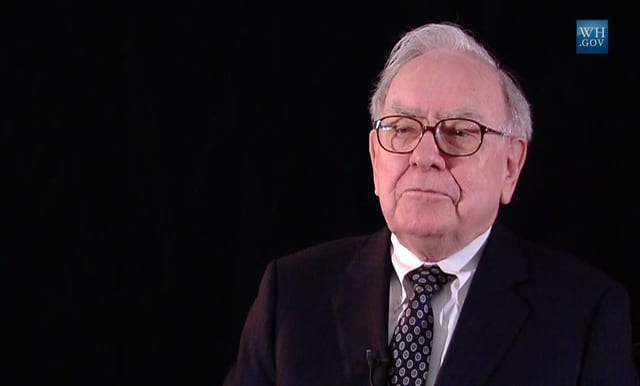Two of America’s three richest men want their taxes increased. Or do they?
“I think our system can be a lot more progressive (that is richer people paying a higher share),” Bill Gates wrote Monday on Reddit. “A key element is making capital gains taxation more like ordinary income (some have suggested making them the same) and having an estate tax more like we had in the past (55% above $3.5M).”
Warren Buffett told CNBC’s Squawk Box the same day, “The wealthy are definitely undertaxed relative to the general population.”
Buffett and Gates show they know good public relations, and not necessarily sound tax policy, here. It pays to say the government should tax you more even if it does not pay should the government tax you more.
The richest one percent pay more in income taxes to the federal government than do the bottom 90 percent. The Tax Foundation points out that 44 percent of tax filers pay nothing in federal income taxes. The top quintile, according to the Congressional Budget Office, pays 88 percent of federal income taxes.
The tax code seems fairly progressive, at least regarding individual income taxes, as it stands. If the top 20 percent appears “definitely undertaxed” paying 88 percent of federal income taxes, what portion would make their contribution just? Ninety percent? Ninety-five percent? More?
The top marginal rate under Donald Trump exceeds the top rate that the last three Republican presidents signed into law. It hovers around the average top rate under Barack Obama and less than three percentage points lower than the top rate under Bill Clinton. The current top rate of 37 percent falls 2.60 percentage points lower than the highest rate during the last 30 years and nine percentage points higher than the lowest rate.
The corporate code, more so than individual rates, seems ripe for reform.
The corporate income tax generates $300 billion, less than 10% of federal revenue and less than a fifth of the amount generated by the personal income tax. By capping loopholes — Amazon paid no taxes in 2017 despite generating more than $5.6 billion in profits — and restructuring the tax code the government could generate more revenue, increase transparency, and encourage more employee ownership.
The different rules and rates for C corporations and limited liability companies (LLCs) seems arbitrary and unfair. By moving away from the “double tax” on dividends, or organizing an LLC as a C corporation that receives a credit against already paid taxes when you take money out as a dividend, could held end this artificial construction of tax law created in the latter half of the 20th century.
Because LLCs pay a higher rate than C corporations, grouping all companies under the same laws would allow for a hike in the corporate rate and an elimination, or tax credit, regarding double taxation on dividends. With a credit for dividends paid, reasons for the dual-track structure for corporate taxes would be mostly eliminated. A simpler tax code would emerge.
Managers of public C corporations could focus on increasing dividends per share. Capital expenditures would be judged on impact or stability of the dividend and growing dividends per share. Employees of public or private C corporations will add to their income with dividends, and the value of employee owned C corporations will increase as dividends increase. Splitting cash flow between dividends and stock repurchase will give owners of private C corporations liquidity. Repurchasing shares of public C corporations will reduce shares and increase dividends per share. More cash flow for dividends will increase federal tax revenue and make a path for reducing income inequality, in part by the removal of roadblocks to employee ownership inherent in laws governing LLCs.
As it stands, the dwindling portion of federal revenues paid through corporate taxes results in a more regressive tax code. Payroll taxes, for instance, constitute a much higher percentage of revenues than corporate taxes (about a third versus about a tenth). As late as 1943, corporate taxes eclipsed individual income taxes as revenue producers.
Corporate titans argue that individuals, specifically wealthy individuals, get away without paying their fair share. The numbers do not support this. Corporations, on the other hand, pay a diminishing share of revenues. To achieve the ends Buffett and Gates claim to pursue, a restructuring of that part of the tax code more relevant to them seems in order.
Hunt Lawrence is a New York-based investor. Daniel Flynn is the author of six books.
























